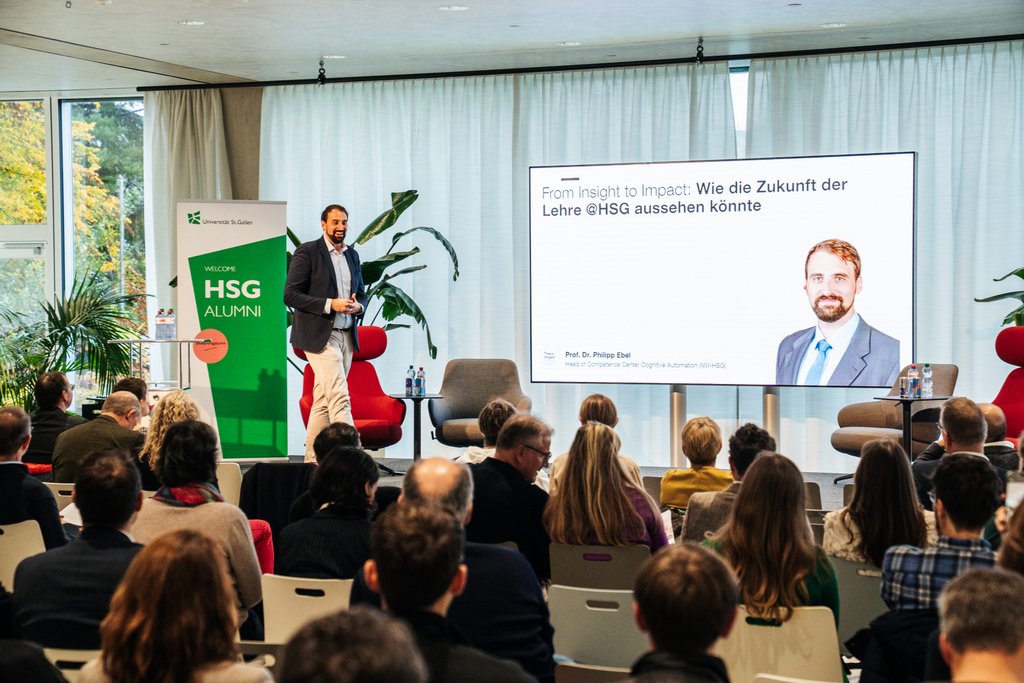Campus - 23.10.2025 - 14:30
Around 95,000 students in Switzerland write a thesis every year. In Europe, this figure is as high as 5 million. This equates to approximately 2.5 million working years. However, this enormous potential often goes to waste in university drawers instead of having an impact on the economy and society. Conversely, graduates often view theses as a tedious chore rather than an exciting, career-enhancing task.
Today's Thesis Impact Summit at SQUARE at the HSG therefore addressed how cooperation between universities and external partners on theses can be improved without compromising academic quality. Around 200 industry experts and course directors from universities in Switzerland, Austria, Germany, and Liechtenstein attended. A survey of 472 programme directors from Swiss universities and universities of applied sciences, which was presented at the summit, shows that universities actually want to cooperate more with industry. However, only around half of them currently work with external partners on theses. However, 68 per cent of programmes that currently do not cooperate want to do so in future.
But how can students, programme directors and industry partners be brought together in the best possible way? A research project funded by Innosuisse and initiated by the HSG, ETH Zurich and the University of Applied Sciences of Eastern Switzerland, in collaboration with implementation partners economiesuisse, the Swiss Employers' Association and the HSG spin-off Studyond, is addressing this question. The project aims to develop an AI-supported matching platform. Professors Jan Marco Leimeister and Philipp Ebel, from the Institute of Information Systems and Digital Business at HSG (IWI-HSG), are leading the project's scientific support and conceptual development. Philipp Ebel explains, “We are researching how data- and AI-supported processes can bring students, companies, and universities together in a targeted manner to promote practice-oriented theses and accelerate knowledge transfer.”
The implementation partner for the platform is Studyond, an HSG spin-off and ETH start-up. ‘Graduates from all Swiss universities and universities of applied sciences are already active on our platform, as are several well-known companies such as Swiss Re, Swiss Post, Nespresso and CERN,’ says Dr Philipp Wetzel. Three other HSG alumni were also involved in founding Studyond. The goal now is to further develop the platform so that it can become the central hub for knowledge and technology transfer between science and practice in Europe.
